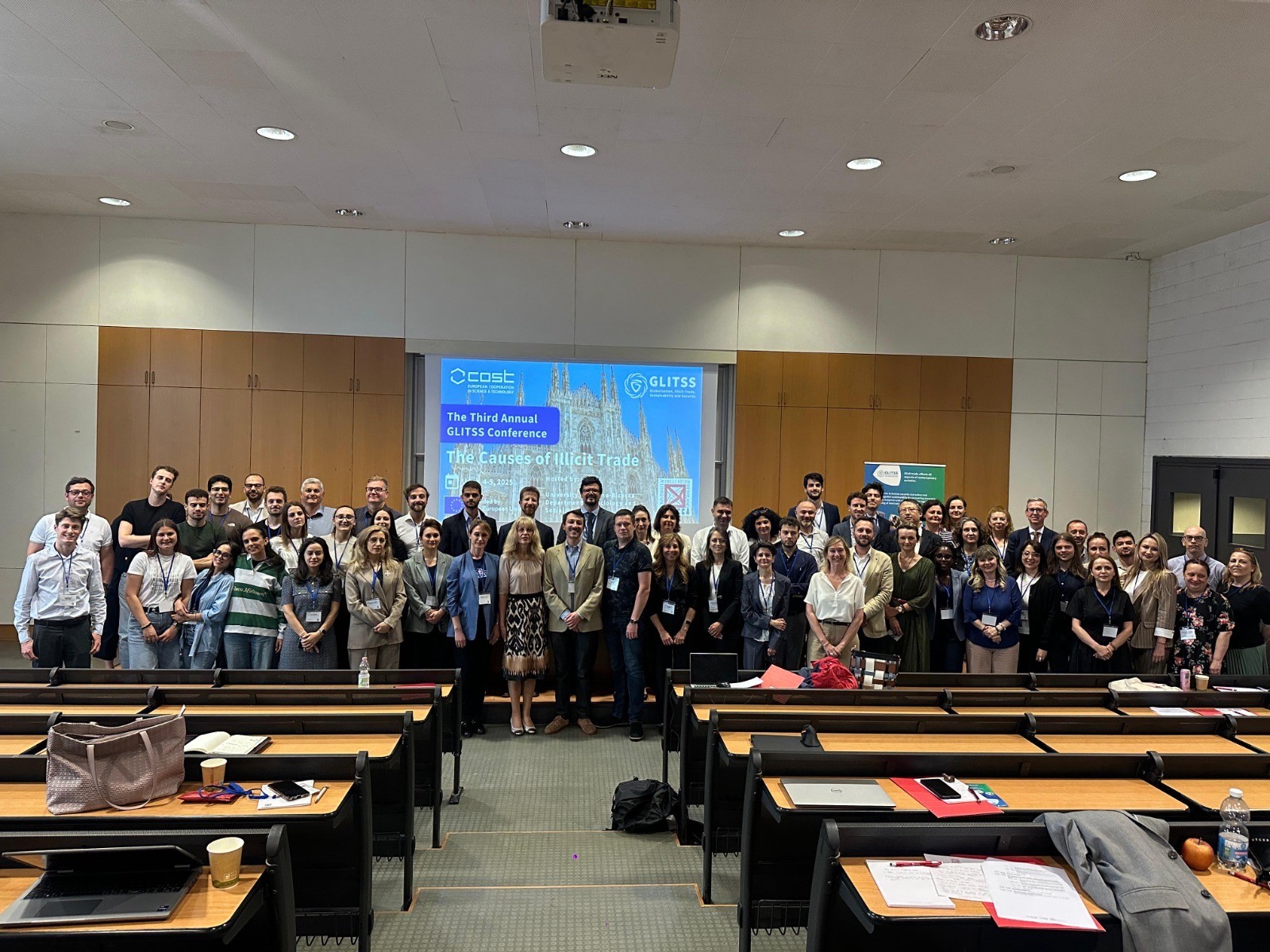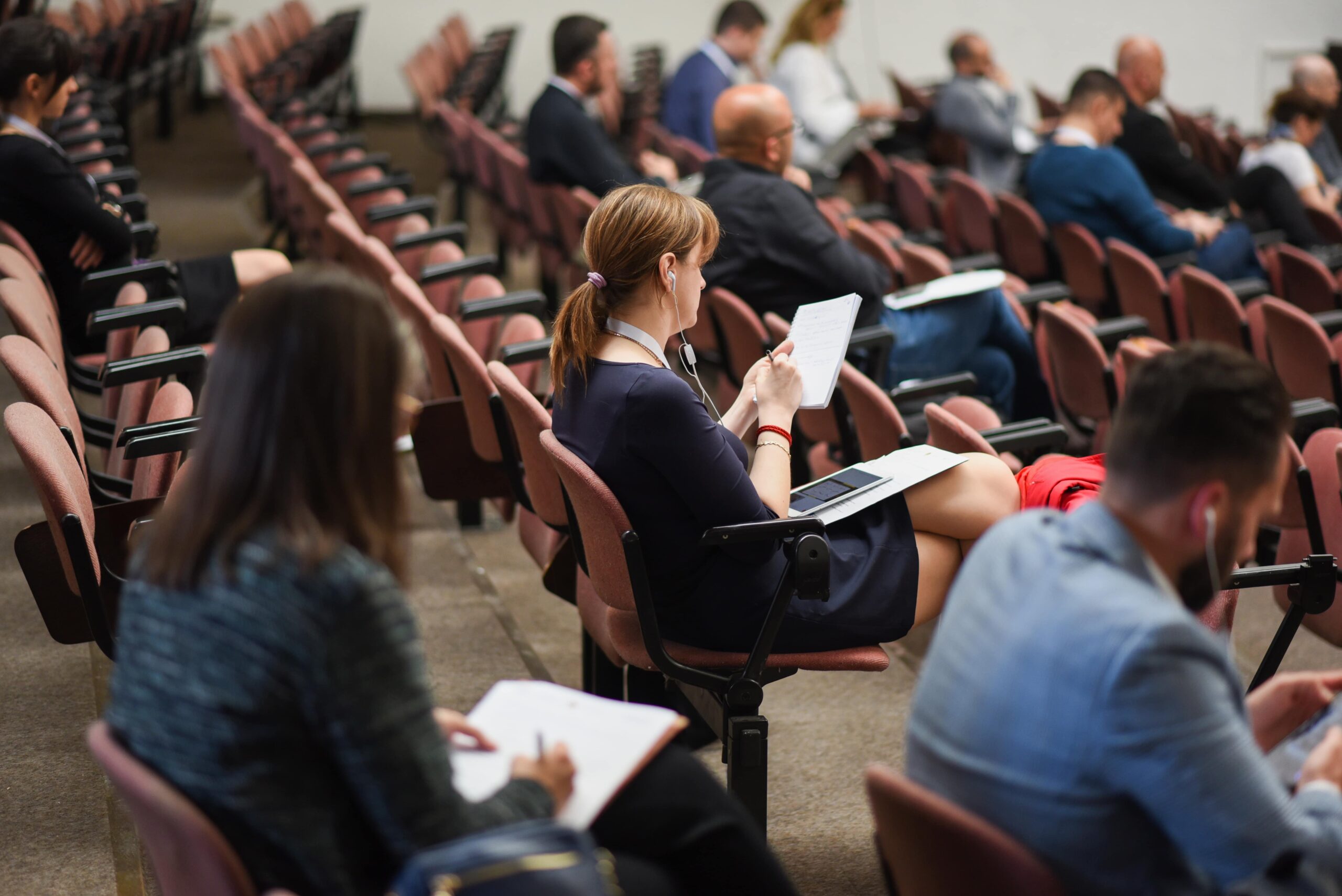GLITSS Annual Conference
The general purpose of the Annual GLITSS Conferences revolves around addressing the multifaceted challenges posed by illicit trade in the context of globalisation. These conferences aim to foster a comprehensive understanding of illicit trade’s impact on global security, economic sustainability, and social well-being. The GLITSS Conference is open to both participants and presenters. The paper presentation proposals are reviewed by the GLITSS Core Group, and they are also considered for publication in edited volumes planned to be published within the scope of this COST Action.
Upcoming Conferences
The third annual GLITSS conference will take place in 2025 and will focus on the causes of illicit trade. This event aims to shed light on the multifaceted reasons behind the persistence and growth of illicit trade in the context of globalisation, including globalisation, migrations, weak legal frameworks, corruption, conflicts and instability.
The fourth annual GLITSS conference scheduled for 2026 will focus on the responses to illicit trade. This conference aims to explore and evaluate various strategies and responses that governments, international organizations, private sectors, and civil society have developed and implemented to combat illicit trade. These include strengthening international cooperation in combating illicit trade, enhancing legal and regulatory frameworks, leveraging technology and innovation, capacity building, consumer awareness and education.
Do you want to host the 2025 or 2026 GLITSS Annual Conference?
Our Conferences usually take place in the spring and venues need to be able to host between 50–100 researchers. If you would like to host one of our upcoming GLITSS conferences in 2025 or 2026 please send an expression of interest containing room availability and capacity via the button below.
2025 Annual Glitss Conference “The Causes of Illicit Trade” – Milan, Italy

The third GLITSS Annual Conference was successfully held on June 4th, 2025, at the University of Milano Bicocca in Milan. Hosted by the Department of Sociology and Social Research, the conference brought together international scholars, experts, and policymakers to explore the underlying causes of illicit trade and its far-reaching effects on global security, sustainability, and governance.
Opening remarks from institutional leaders set the tone for a day of thoughtful discussion and interdisciplinary exchange. A compelling keynote address challenged participants to rethink current understandings of illicit markets and to consider new avenues for both research and policy action. Panel sessions throughout the day focused on a variety of topics, including the legal, social, and economic dimensions of illicit trade. Speakers addressed the complexity of illicit networks and highlighted how such activities intersect with issues of migration, counterfeiting, and institutional trust. The conference featured two main panel sessions. The first explored the consequences of illicit trade for safety, security, and sustainability, highlighting how illegal markets undermine institutional trust, threaten public health, and contribute to global insecurity. The second panel focused on the structural causes and enabling conditions of illicit trade, examining the role of legal loopholes, weak enforcement, and socio-economic disparities in facilitating the growth of shadow economies. Both sessions generated lively discussion and offered diverse perspectives from ongoing academic research and field-based insights. The conference fostered valuable dialogue between academics and practitioners, creating a space for collaboration across disciplines and sectors. Both in-person and online attendees contributed to dynamic discussions that underscored the importance of evidence-based approaches to tackling illicit economies.
We extend our sincere gratitude to our host, the Department of Sociology and Social Research at the University of Milano-Bicocca, for their generous support and hospitality. We also warmly thank all participants, panelists, and contributors whose insights, engagement, and behind-the-scenes efforts helped shape a rich and successful event. Your commitment and collaboration were essential to the organization and impact of the 2025 GLITSS Annual Conference. We look forward to continuing this important conversation within the GLITSS network and beyond.
2024 2nd Annual Glitss Conference - Sarajevo, Bosnia & Herzegowina

The second annual GLITSS conference titled “The Unseen And Far-Reaching Consequences Of Illicit Trade In Times Of War And Beyond” took place on 16 May 2024 at the Faculty of Criminal Justice and Security Studies, University of Sarajevo. While focusing on the consequences of illicit trade, it delved into the intricate repercussions of illicit trade on contemporary societies within the European and global context.
Illicit trade, encompassing activities such as counterfeiting, smuggling, and trafficking, extends beyond mere economic and legal concerns to pose significant security, safety and sustainability challenges. It enables security threats to materialize, such as natural-resource-fueled conflicts and terrorism. It presents safety hazards, such as those created by counterfeit medicines and drugs. It threatens the sustainability of our societies by consuming excessive planetary resources and undermining the regulated functioning of international markets. Yet, despite this apparent objective relevance, the discussion on illicit trade remains compartmentalized within disciplinary boundaries. Bringing together experts, policymakers, academics, and industry stakeholders, the conference explored the complex interplay between illicit trade and its multifaceted threats to security, safety, and sustainability.
2023 Kick-off Conference - Skopje, North Macedonia

